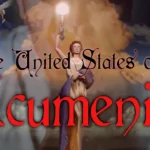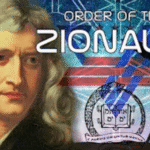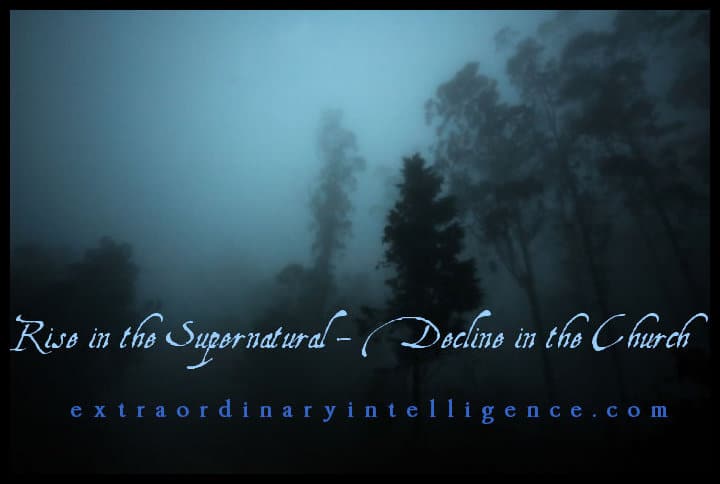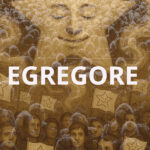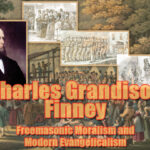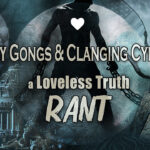Natalina | Extraordinary Intelligence
“Every answer can be found within a Christian worldview. We could be and should be out there every day giving people the answers to the confusing things that they are witnessing on a daily basis. We should be countering every claim that the New Age puts forth. We literally know the antidote to the rampant evil of this world…”
“This denial of the basic truth that we live in a supernatural world is exactly what could lead to the Great Deception.
If spaceships suddenly appeared over Washington D.C., what would Christians do? How would the church respond? What happens to people when they aren’t prepared for this possibility?
If a false prophet arrives on the scene claiming that he has the answer to all of the mysteries of life, how would a Christian with no training in the supernatural respond? What would become of those who believe in the supernatural but aren’t familiar with the truths of the Bible? Would they flock to the church for answers or would they believe the lying signs and wonders? And even if they did go to the church, would the church be prepared to provide an answer? Or would the pastors be so mystified by what was happening, that they too would be deceived?…”
According to a Gallup poll, 73% of Americans believe in some form of supernatural phenomena. A Nat Geo poll determined that 80 million Americans believe in UFOs, and one in TEN claim that they have actually seen a spaceship. A Scripps poll revealed the startling information that 74% of 18-24 year olds believed it was likely that intelligent life exists on other planets. A YouGov poll conducted in September of this year found that half of Americans believe in demonic possession.
An interesting addition from Gallup was that some information about diabolical possession was omitted from the results. According to Gallup: “The poll shows that 42% of Americans believe that “people on this earth are sometimes possessed by the devil.” However, it is unclear how many people treat that statement literally, and how many interpret it in metaphorical terms. Thus, for purposes of this analysis, that item was excluded.”
Now consider this…..
A June 2013 Gallup poll showed that 77% of people believe religion is losing its influence on American life. It turns out that churchgoers are currently a minority in America. Gallup claims that 40% of Americans are regular attendees, but the numbers are actually much lower… close to 18.7%, according to the most accurate data. The number of people who claim Christianity as their faith has dropped by 11 percentage points over the past 20 years. Of those who claim to have left Christianity, it was not because they found a more appealing religious belief system, but because they decided to leave “religious” life altogether. A LifeWay poll revealed that 46% never think about whether they’re going to Heaven or Hell. The largest percentage of people leaving the church is amongst young people, and Evangelical Covenant church planter David T. Olson forecasts that if current trends continue, church attendance in 2050 will be HALF of what it is today.
So, how do we reconcile the increase in those who believe in supernatural phenomena with the decline of professing Christians? The seeming disconnect is mind-boggling. Logic would seem to indicate that a rise in belief in the spiritual realm should equal an increase in church attendance and Christianity at large, but this has not been the case. What is going on?
At a rehearsal dinner for a wedding I was recently involved in, I had a discussion with a pastor from an Evangelical church. He asked me to share my testimony. I told him about my research into the paranormal and supernatural, and I explained to him how I had a transformational experience that led me to Jesus. He asked me why I do not regularly attend his church, or any church for that matter. I felt compelled to share with him the fact that it is not for lack of desire for fellowship, but because I’ve been increasingly put off by the church’s inability to recognize the supernatural aspects of our faith and the world around us.
He stared at me for a few moments, and I wondered if I’d crossed some kind of line; if in my passion I’d inadvertently insulted his ministry. After an awkward pause, he said to me, “You know. I’ve seen things that you could call paranormal. Things that scared me.”
This sent my mind into a tailspin. I’d attended this church a number of times in the past, and it always came across as the standard, seeker friendly type – High-energy praise and worship team, community activism, occasional discussion of end times prophecy… but really no discussion of the supernatural realm. Certainly no acknowledgement that we wrestle not against flesh and blood. And yet, here the pastor was telling me that in his personal life, he’d experienced the paranormal. Further, it had made him afraid! The fact that he’d not translated that into some kind of warning or message to his congregation was perplexing.
As I went on to explain to him my concerns about the apparent rise in New Age philosophies and the glamorization of the occult, he became increasingly concerned. In the end, I was invited to come to the church to talk about what I’d learned about the supernatural realm in my studies and experience.
This was a welcome albeit scary invitation, and I accepted. But I remained troubled about the implications. Who am I? I’m just a normal (debatable) girl who came out of the New Age and into the loving arms of Jesus. None of the information I’ve gleaned about the supernatural is terribly unique. I base my conclusions on scripture. The leadership of this church is comprised of men who’d gone to seminary and had spent their lives studying the Word. They should be equipped to answer these questions.
And herein lies the problem. It is troubling that a Christian pastor should consider with awe the concept that supernatural events have taken place in the past and continue to do so today, as though the concept is somewhat foreign. From Creation to Revelation, the Bible is nothing if not an entirely supernatural guidebook, filled with prophecy, revelation, deliverance, resurrection, and everything in between. That a minister would feel awkward addressing topics relevant to the supernatural, yet expect that their congregation should believe all of the supernatural events contained within scripture, could be largely why we’re seeing an increase in the belief in the supernatural and an overall decline in church attendance.
If you eliminate any discussion of the supernatural in the church, how can you account for the amazingly supernatural occurrences found throughout the Bible? What about the prophets? What about Lazarus? What about a third of Jesus’ ministry on Earth being demonic deliverance? What about the Resurrection of Jesus? What about the book of Acts? What about the entire Book of Revelation? You simply CANNOT have a full discussion of scripture without acknowledging the supernatural. And IF pastors were more open to such discussions, I submit that churches would explode in membership, because clearly the majority of the population is looking for answers.
In the absence of a loud response from the Christian community regarding paranormal phenomena, the New Age has created a welcoming environment for seekers. Mystic and spiritualist traditions eagerly embrace those who are confused about the supernatural and in search of answers. Similarly, a rise in the occult in media and popular culture has wrapped its tentacles around the hearts and minds of millenials. Have you seen a “ghost”? Forget about searching scripture for answers. Watch Ghost Hunters instead! Have you got questions about the future? Don’t pray about it. Don’t look to the wisdom of Biblical prophets. Just ask the Long Island Medium! Have you seen a UFO? Don’t ponder the question of powers and principalities. Just watch Ancient Aliens!
In my opinion, the church has become too political, too watered down, and is sadly lacking in the acknowledgement of the spiritual realm. The saddest part is that the Bible and Christianity hold the KEY to all of it. Every answer can be found within a Christian worldview. We could be and should be out there every day giving people the answers to the confusing things that they are witnessing on a daily basis. We should be countering every claim that the New Age puts forth. We literally know the antidote to the rampant evil of this world, and yet there is a fear that we’ll be seen as too draconian in our beliefs… too apologetic for the church’s history of spiritual warfare. We’re afraid that we will be made fun of or laughed at… that no one will believe our claims. We’re missing the fact that according to every poll, to discuss the supernatural would increase the Christianity’s perceived relevancy, because most people already believe in the supernatural!
This denial of the basic truth that we live in a supernatural world is exactly what could lead to the Great Deception. If spaceships suddenly appeared over Washington D.C., what would Christians do? How would the church respond? What happens to people when they aren’t prepared for this possibility? If a false prophet arrives on the scene claiming that he has the answer to all of the mysteries of life, how would a Christian with no training in the supernatural respond? What would become of those who believe in the supernatural but aren’t familiar with the truths of the Bible? Would they flock to the church for answers or would they believe the lying signs and wonders? And even if they did go to the church, would the church be prepared to provide an answer? Or would the pastors be so mystified by what was happening, that they too would be deceived? These are scary questions. And we must consider them.



